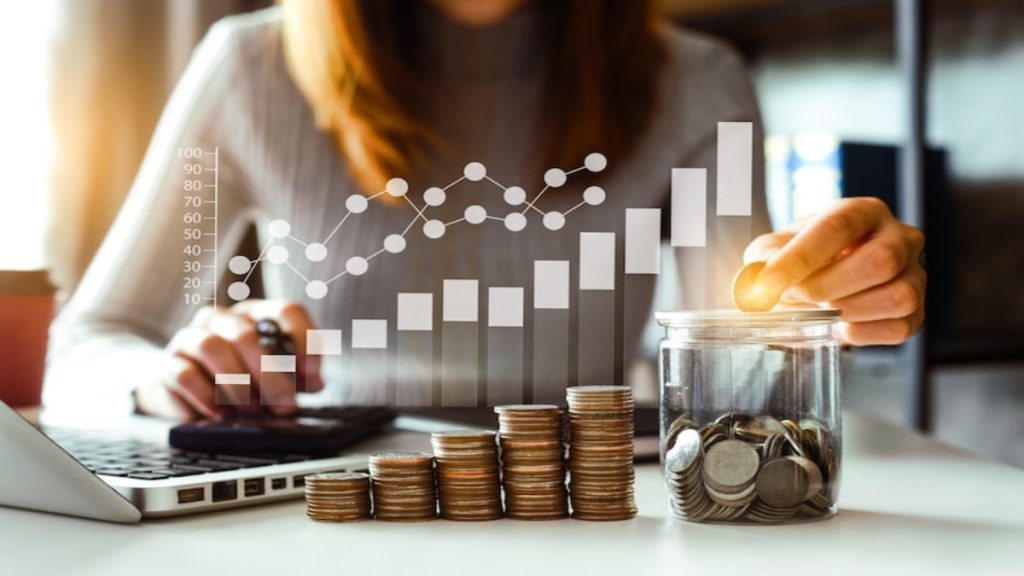Why Investing in Yourself Pays Off in the Long Run
Jessica White August 7, 2025
In a world that’s increasingly fast-paced, competitive, and digitally connected, investing in yourself is no longer a luxury—it’s a strategic necessity. Whether it’s picking up new skills, prioritizing your mental health, or carving out time for personal reflection, putting yourself first is one of the smartest long-term decisions you can make.
And right now, this idea isn’t just a motivational poster—self-investment is trending. From online learning platforms to mental health apps and wellness routines, people are leaning into self-improvement like never before. Here’s why it matters—and how to do it right.

What Does It Really Mean to Invest in Yourself?
Investing in yourself isn’t just about taking a course or reading more books. It includes:
- Learning new skills that enhance your career or personal life
- Maintaining your physical and mental health
- Setting clear personal goals and tracking progress
- Building strong social and professional networks
- Creating time and space for reflection and creativity
Each of these actions builds your personal capital—making you more resilient, adaptable, and fulfilled.
The Lifestyle Shift: Self-Directed Growth Is Becoming Mainstream
A major trend in the lifestyle space is the rise of self-directed personal development. Unlike traditional education or rigid self-help programs, modern self-investment is more fluid, digital-first, and often community-based.
According to a 2024 report by LinkedIn Learning, 57% of professionals globally are prioritizing skills development outside of formal education systems, often through microlearning, podcasts, and short-form video content .
Meanwhile, mental health platforms like Headspace and Calm have seen a surge in usage, reflecting a broader movement toward wellness as an everyday practice—not just a crisis response .
This isn’t just a phase—it’s a shift in how people approach lifestyle and work-life balance.
5 Powerful Ways to Invest in Yourself Toda
1. Prioritize Lifelong Learning
The half-life of skills is shrinking fast. The World Economic Forum estimates that by 2027, 44% of workers’ core skills will have changed . Whether you’re a creative, entrepreneur, or employee, upskilling is non-negotiable.
Try this:
- Subscribe to a platform like Coursera, MasterClass, or Skillshare.
- Set a weekly learning goal (e.g., 30 minutes daily).
- Pick skills that align with your long-term personal or professional vision.
2. Take Your Mental Health Seriously
Self-care isn’t just face masks and bubble baths. It’s about setting boundaries, managing stress, and seeking help when needed. Ignoring mental well-being can lead to burnout, decreased productivity, and poor relationships.
What works:
- Therapy or coaching (online options make this accessible)
- Daily journaling or mindfulness practice
- Reducing screen time, especially before bed
3. Build a Resilient Routine
Routines help reduce decision fatigue and create stability. But a rigid schedule isn’t necessary—instead, think of routines as frameworks that support your goals.
Key components:
- Morning and evening rituals (e.g., planning your day, winding down)
- Regular movement (not just gym sessions—walking counts)
- Consistent sleep and hydration habits
4. Cultivate a Growth Network
Surrounding yourself with the right people is an overlooked aspect of self-investment. From mastermind groups to online communities, your network can challenge, inspire, and keep you accountable.
Ways to start:
- Join forums related to your interests (Reddit, Discord, LinkedIn Groups)
- Attend local meetups or virtual co-working spaces
- Follow thought leaders and engage in conversations
5. Treat Time Like Money
Your time is your most valuable asset. Learning to manage it well directly influences how much you can achieve and how calm you feel doing it.
Best practices:
- Use time-tracking apps like Toggl or RescueTime
- Apply prioritization frameworks (Eisenhower Matrix, time-blocking)
- Schedule downtime—rest isn’t optional
The Long-Term Payoff of Investing in Yourself
Unlike short-term gratification, self-investment brings compounding returns. Here’s what you can expect over time:
- Increased confidence as you master new skills and take control of your life
- More opportunities in your career and relationships
- Improved well-being from better physical and mental health habits
- Greater resilience to adapt during periods of change or uncertainty
And perhaps most importantly, investing in yourself builds a sense of agency—the feeling that you are actively shaping your life, not just reacting to it.
Avoid These Common Mistakes
Even with good intentions, it’s easy to misstep. Here are a few pitfalls to steer clear of:
- Overloading your schedule with “productivity”—burnout isn’t progress.
- Comparing your growth to others online—social media is a highlight reel, not real life.
- Waiting for the perfect moment—small steps now are better than big ones never taken.
You Are the Asset
Here’s the truth: your skills, mindset, and well-being are assets. And just like any other asset, they require time, energy, and attention to grow.
The modern lifestyle movement is clear: people want more control, more intention, and more meaning in how they live and work. Investing in yourself isn’t just trending—it’s a strategy for long-term success and satisfaction.
So whether you’re learning a language, starting therapy, building a morning routine, or just finally taking weekends off—remember, every step adds up.
The key is consistency. Even small, manageable efforts—like reading for 10 minutes daily, drinking enough water, or replacing 30 minutes of scrolling with a short course—can lead to measurable change over time. You’re not just filling time; you’re laying a foundation for greater clarity, opportunity, and freedom.
Ultimately, the benefits of investing in yourself show up in your confidence, your ability to make decisions, and your overall quality of life. It’s not selfish—it’s strategic. The better you are, the more you can contribute to others, your work, and your world.
Remember: you are your most valuable resource. In an unpredictable world, investing in yourself gives you the kind of stability no job, trend, or external factor ever could. When you bet on your growth, you’re building a future you can actually depend on.
Let me know if you’d like to convert this into a formatted post for WordPress or another CMS.
References
- LinkedIn Learning. (2024). 2024 Workplace Learning Report. LinkedIn.
Available at: https://learning.linkedin.com (Accessed: 7 August 2025). - Franck, T. (2023, December 10). How mindfulness apps are changing the way we manage stress. CNBC. Available at: https://www.cnbc.com (Accessed: 7 August 2025).
- World Economic Forum. (2023). The Future of Jobs Report 2023.
Available at: https://www.weforum.org (Accessed: 7 August 2025).







